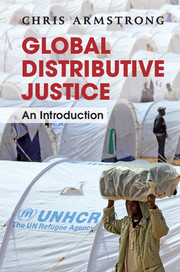3 - Minimalist approaches
from I - Approaches
Published online by Cambridge University Press: 05 June 2012
Summary
This chapter introduces a number of minimalist approaches to global distributive justice, and investigates their reasons for scepticism about global egalitarianism, their chief rival. The three minimalist theories examined in this chapter all embrace the value of equality within individual societies, but reject the extension of egalitarianism to the global level. Minimalists would send us back to the figures about global inequality which were cited at the beginning of chapter 2, and ask a question of us. While we might be convinced that our normative objection is to the inequality involved, minimalists will ask us whether it is not, after all, the poverty, or some people’s lack of access to a decent life, which troubles us, once we have properly reflected on our objections. We might well be troubled by the inferior life chances available to many people in Sierra Leone – which are far worse, according to key indicators, than those available in Denmark. But is the difference between life chances in Sierra Leone and Denmark really the problem, or merely the very low level of the life chances available in Sierra Leone? As a way of examining our normative intuitions about this, consider the smaller, but still real, inequalities between Portugal and Denmark. Do these bother us at all? There are substantial differences in gross national income per capita in the two countries, but do these really matter from the point of view of justice, so long as we are content that the average citizen of Portugal has ready access to the material ingredients of a decent life? To push our intuitions still further, are we bothered at all that per capita national income is higher in Denmark than in the United States? If we are still at all troubled by the inequalities, we are likely to be resolute global egalitarians. But minimalists will try to persuade us that these inequalities at the ‘top end’ of the scale are not, in the end, normatively troubling, and that what we are really bothered by – and what we are right to be bothered by – are the poor life chances available to inhabitants of Sierra Leone. We are bothered by them because they will often fall below what we see as a level compatible with a life of dignity and decency. But it is that minimalist measure of decency, dignity or (as the philosophical literature often puts it) sufficiency that does the work in explaining our normative unease. We might object to such great inequalities inside a single country – and we might be right to do so. But outside the borders of the nation state, we should endorse some form of global minimalism. Delivering on that minimalism will itself present enough of a challenge to the contemporary world.
- Type
- Chapter
- Information
- Global Distributive JusticeAn Introduction, pp. 70 - 103Publisher: Cambridge University PressPrint publication year: 2012



